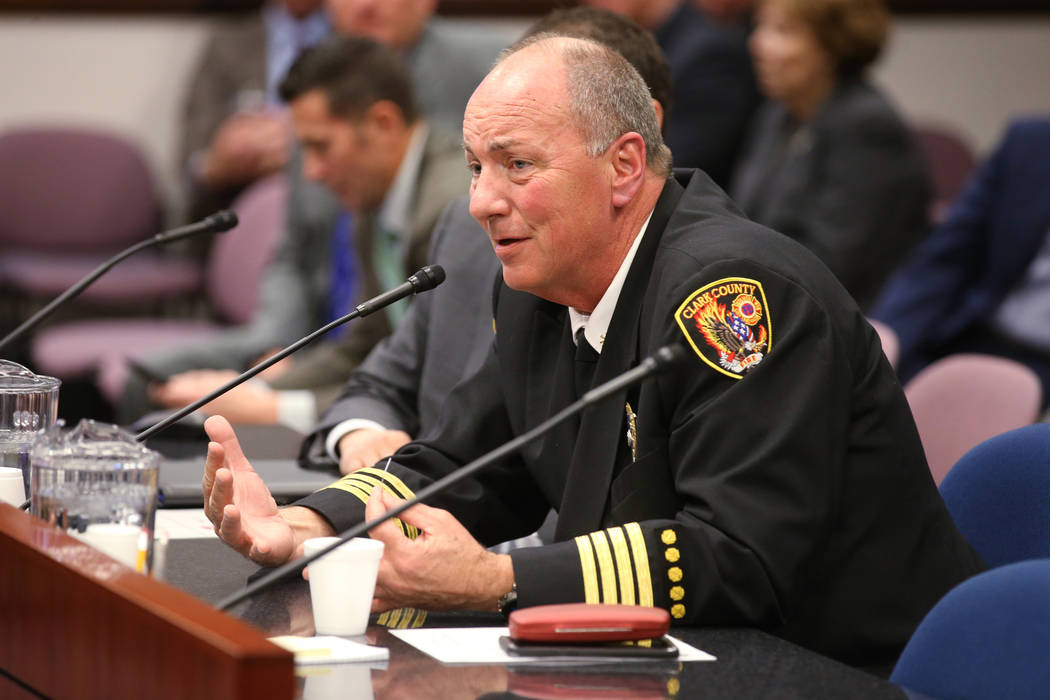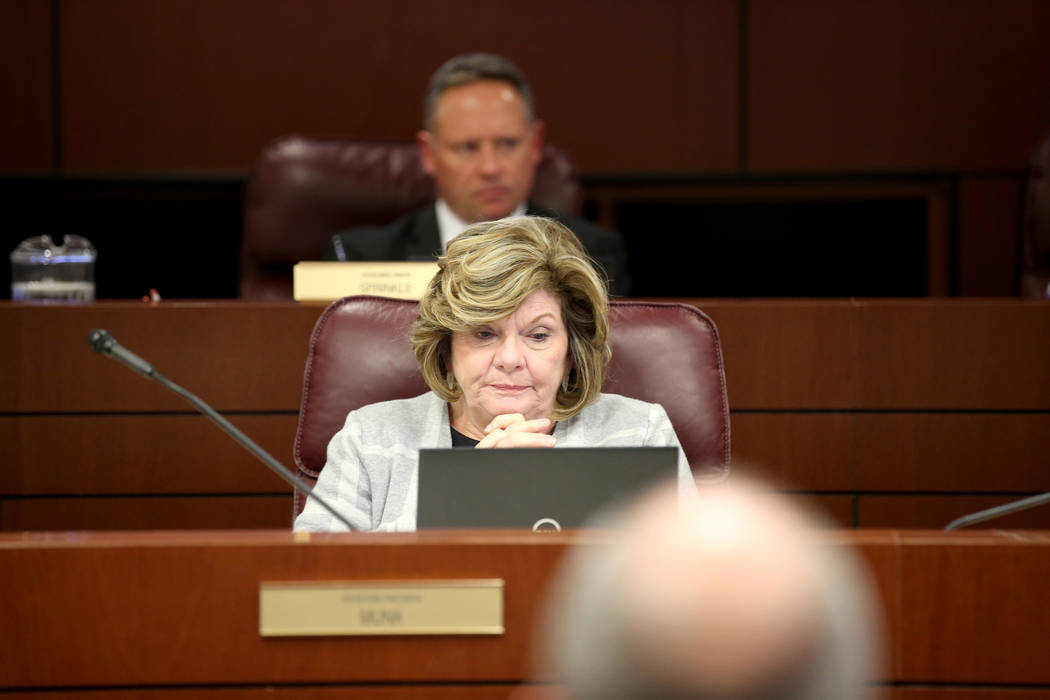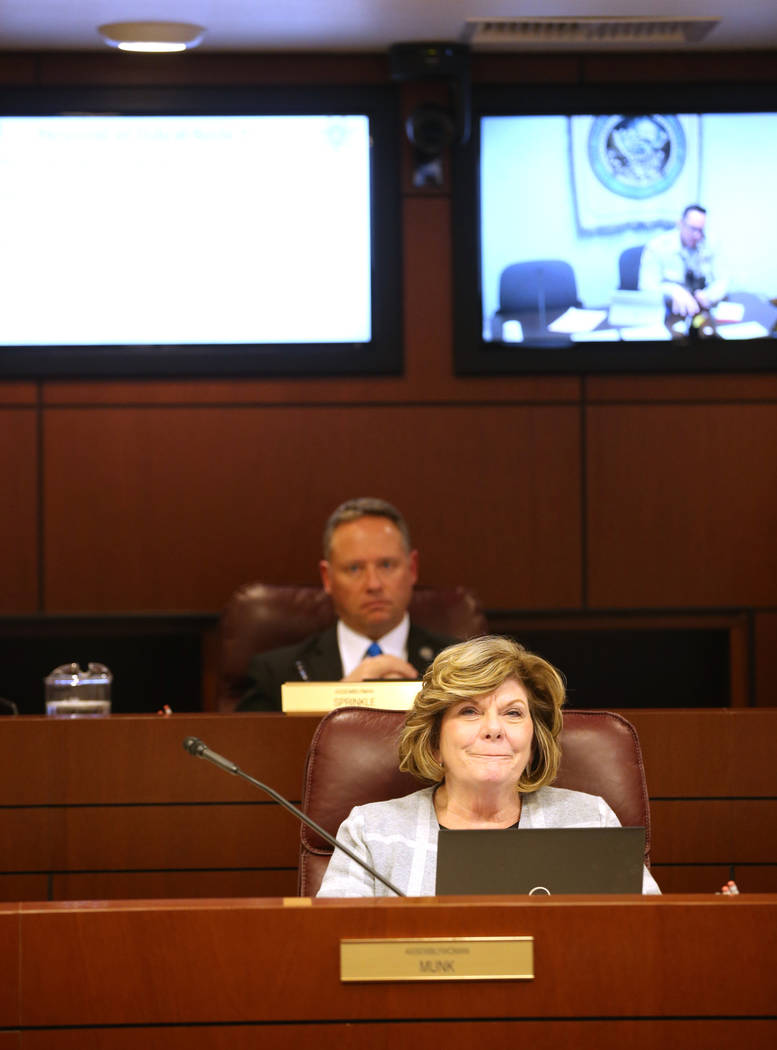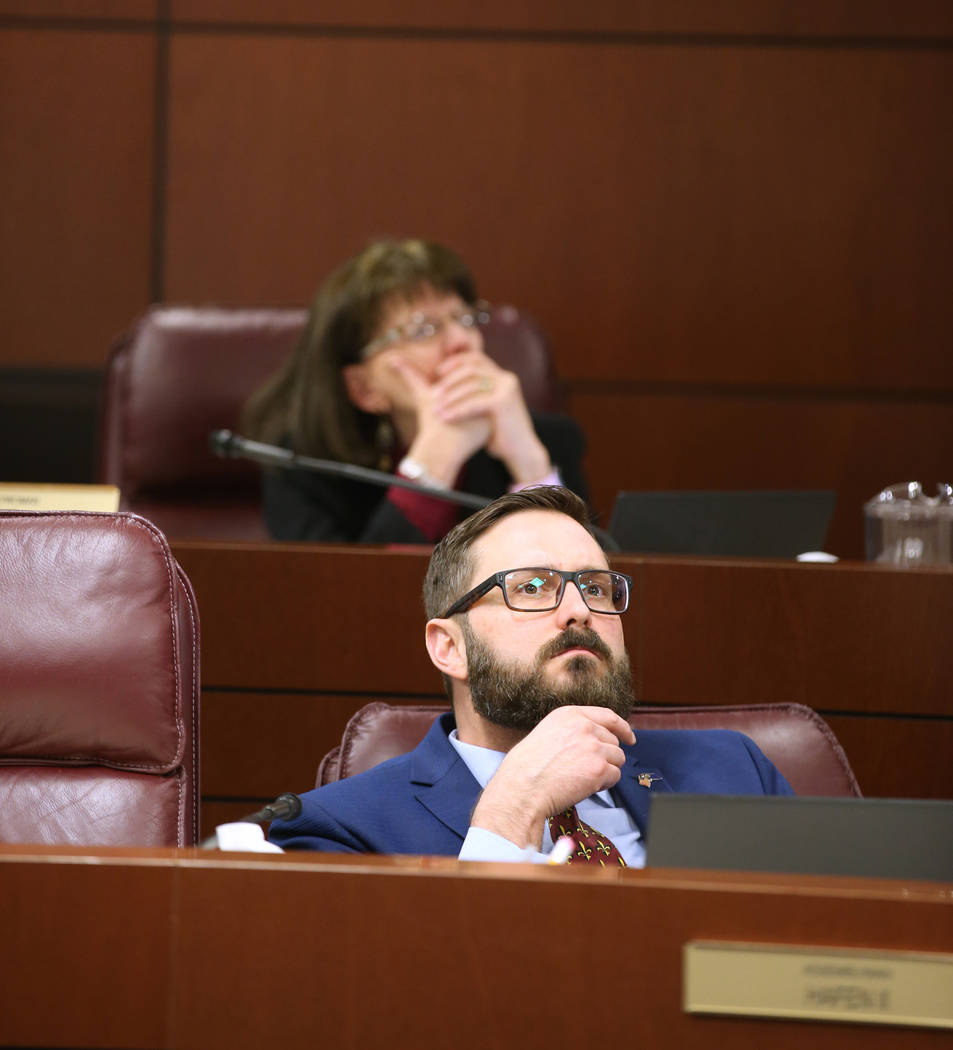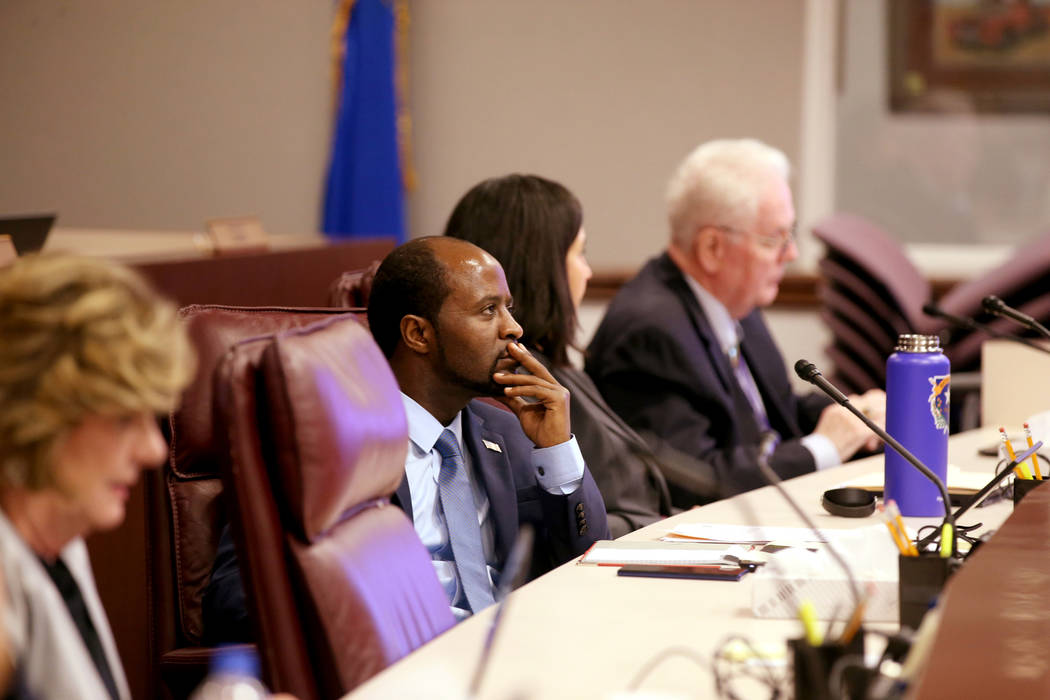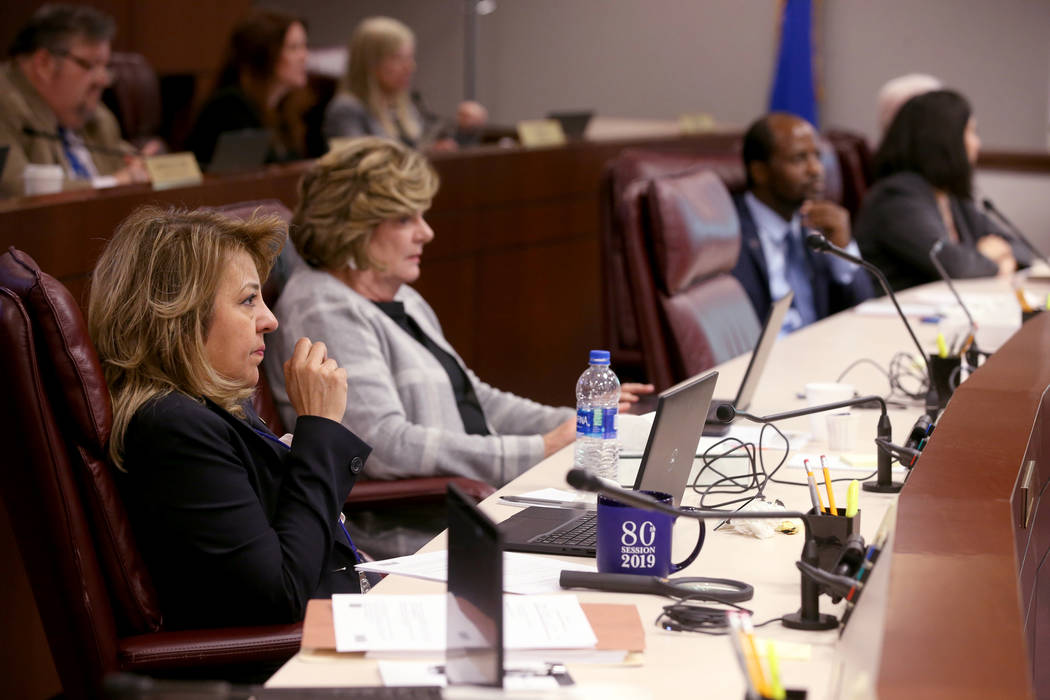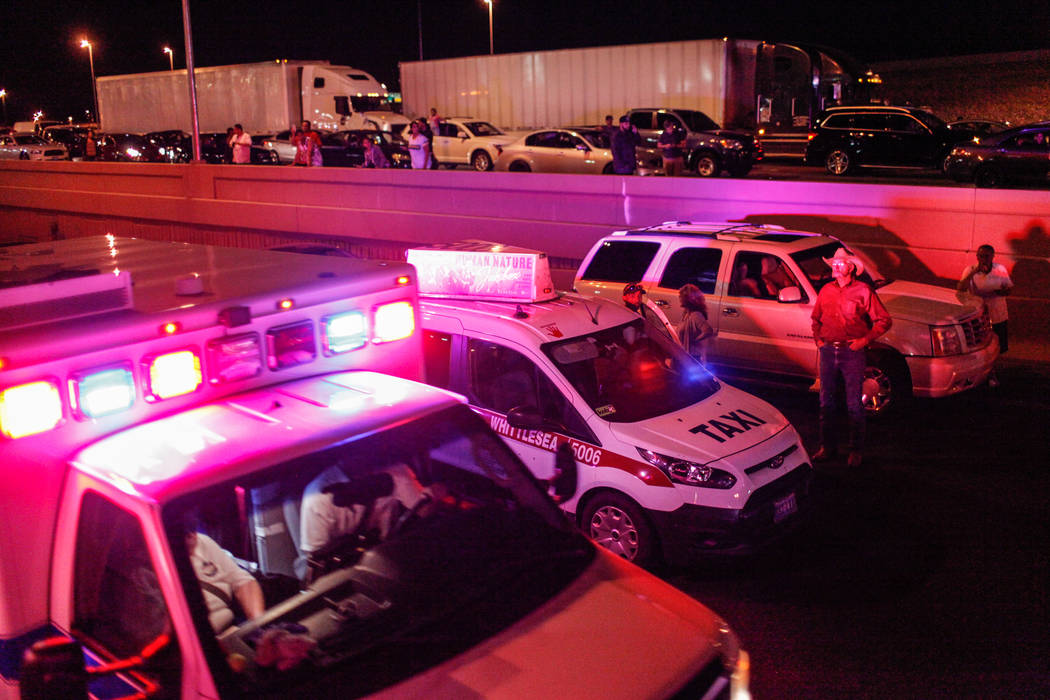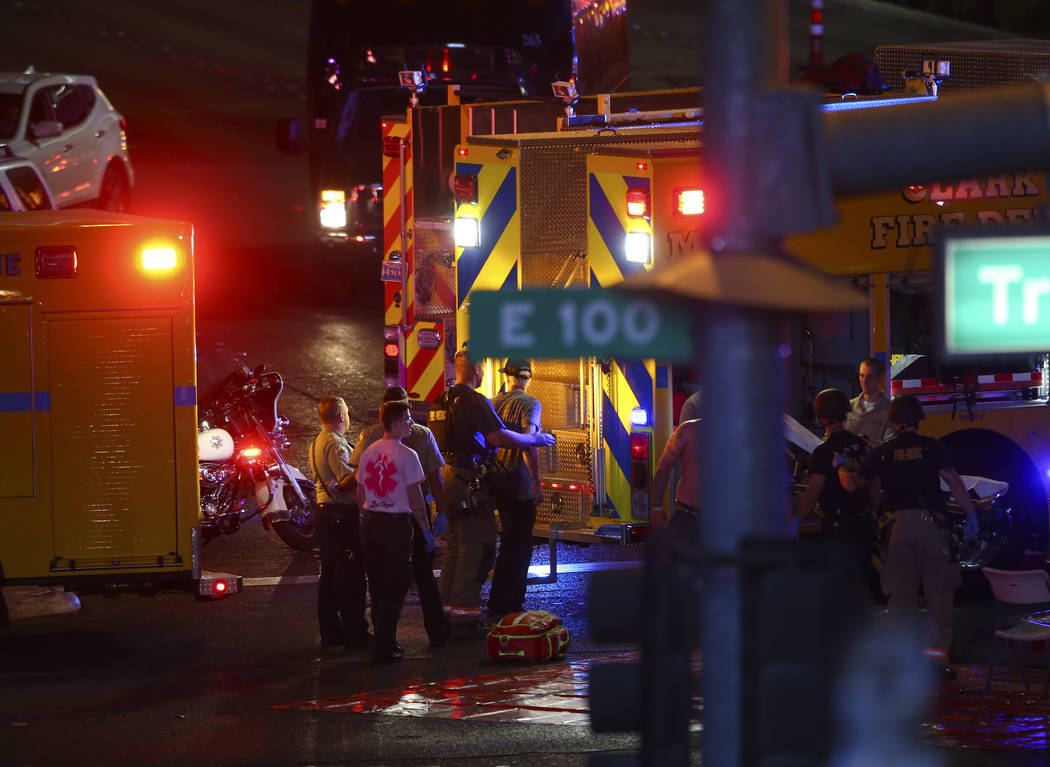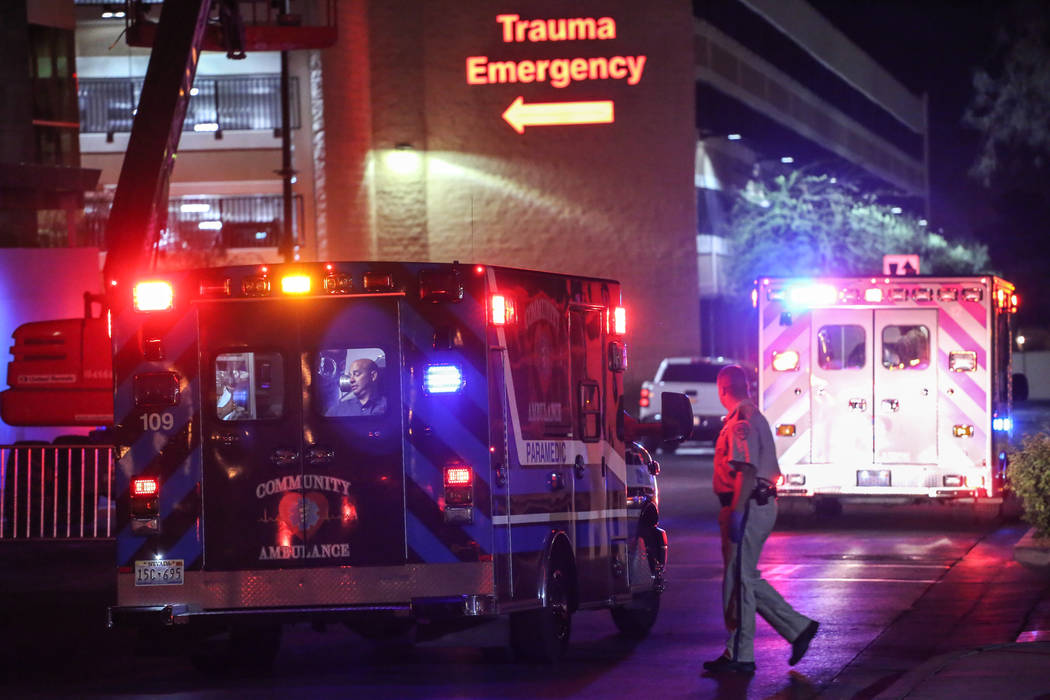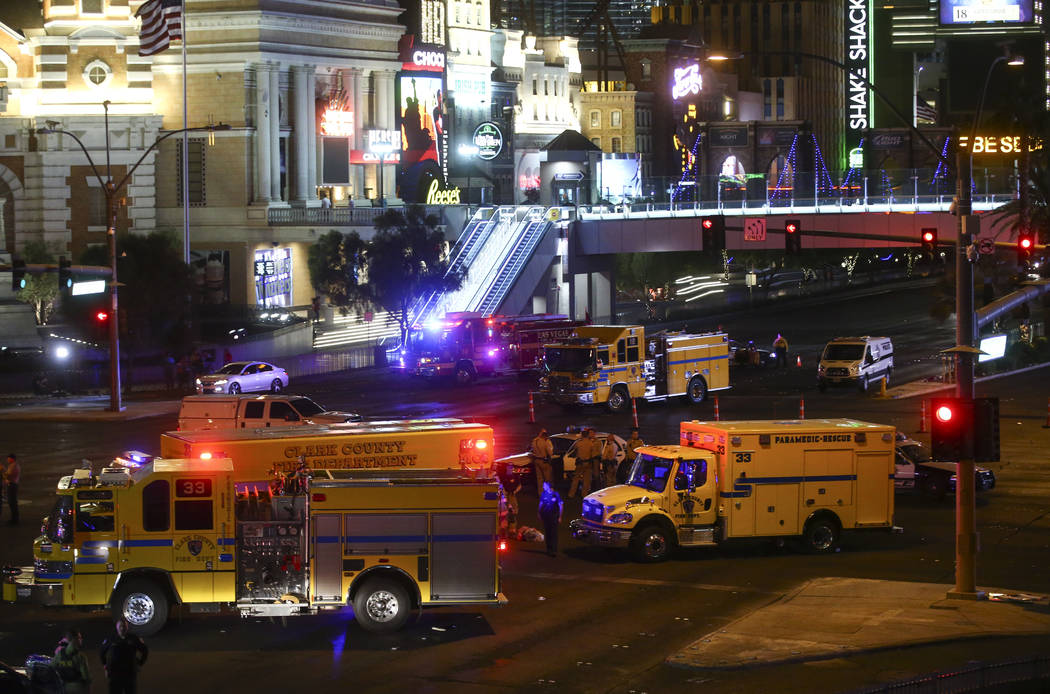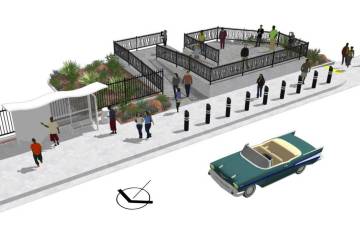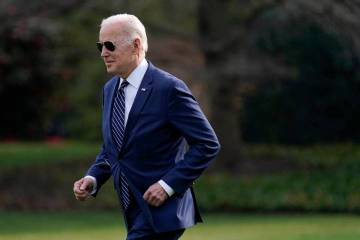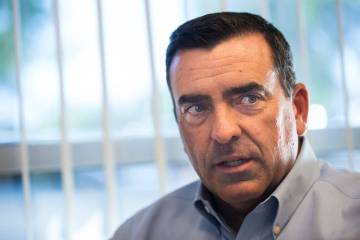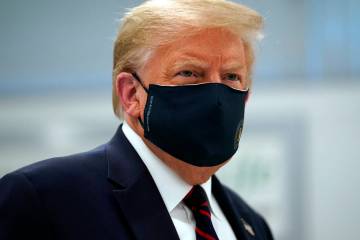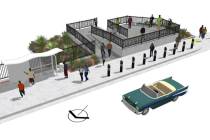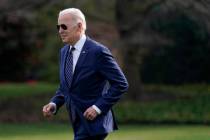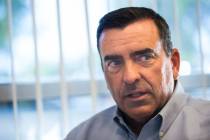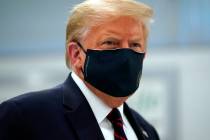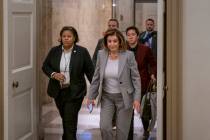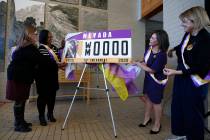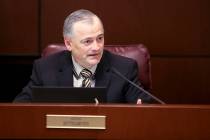Lessons from Las Vegas shooting: send first responders to hospitals
In a presentation to Nevada lawmakers Wednesday, officials reflecting on the emergency response to the 2017 Las Vegas mass shooting said that first responders should be dispersed between the scene of a major incident and area hospitals to help with the influx of patients.
Metropolitan Police Lt. Branden Clarkson and Clark County Deputy Fire Chief Jon Klassen gave an hourlong briefing to the Assembly Health and Human Services committee meeting, the first of the 2019 legislative session.
It was the first time a review of response to the incident was formally presented to legislators, though Clarkson and Klassen said they’ve shared a longer version of their presentation with other organizations.
“We should’ve gone to the area hospitals … as opposed to throwing resources at a crowd running past us,” Klassen said, adding that the department is working with hospitals to create a mass casualty incident plan that would allow for emergency responders to help with triage and transport at hospitals.
Klassen and Clarkson provided the committee with background information on the Oct. 1, 2017, mass shooting at the Route 91 Harvest country music festival, still the deadliest in modern U.S. history, killing 58 and wounding more than 800 others.
Much of the information was a reiteration of observations officials have previously reported, including grievances over the flood of calls from bystanders who falsely reported shooters across the Strip.
The two did not address documented communication issues over police radio channels, which officers wrote in incident reports was spotty inside the Mandalay Bay, where the shooter was stationed. Nor did they address the lack of cross-agency radio communication, which experts have said could have delayed information sharing between police, firefighters and paramedics.
In a response to a question from Republican Rep. Robin Titus, who asked whether communication was improved in the Oct. 1 response compared to cross-agency communication during the attack on the World Trade Center on Sept. 11, 2001, Klassen said the agencies “could do things better, but we are much better.”
“It’s not perfect; we still have work to do,” he said. “But it is much better and expensive. Expensive purchases have been made.”
He added: “And it’s money well spent.”
Contact Jessie Bekker at jbekker@reviewjournal.com or 702-380-4563. Follow @jessiebekks on Twitter.
An earlier version of this story incorrectly identified Rep. Robin Titus as a Democrat.



